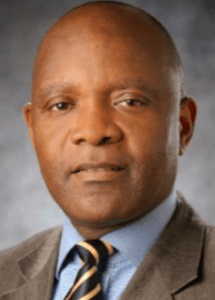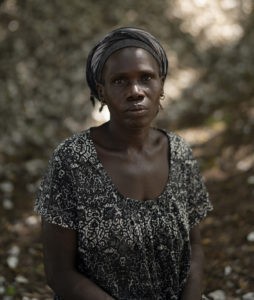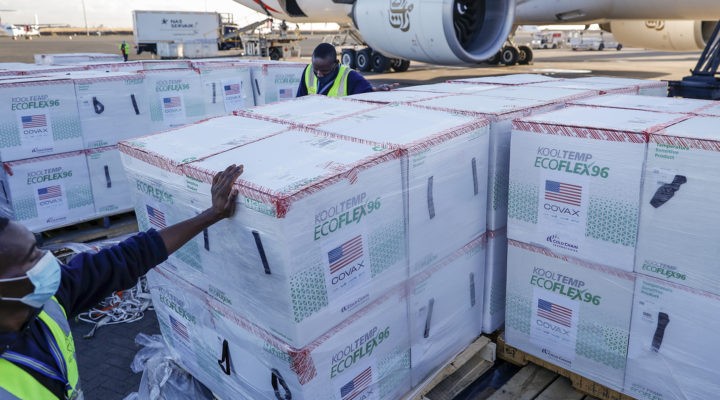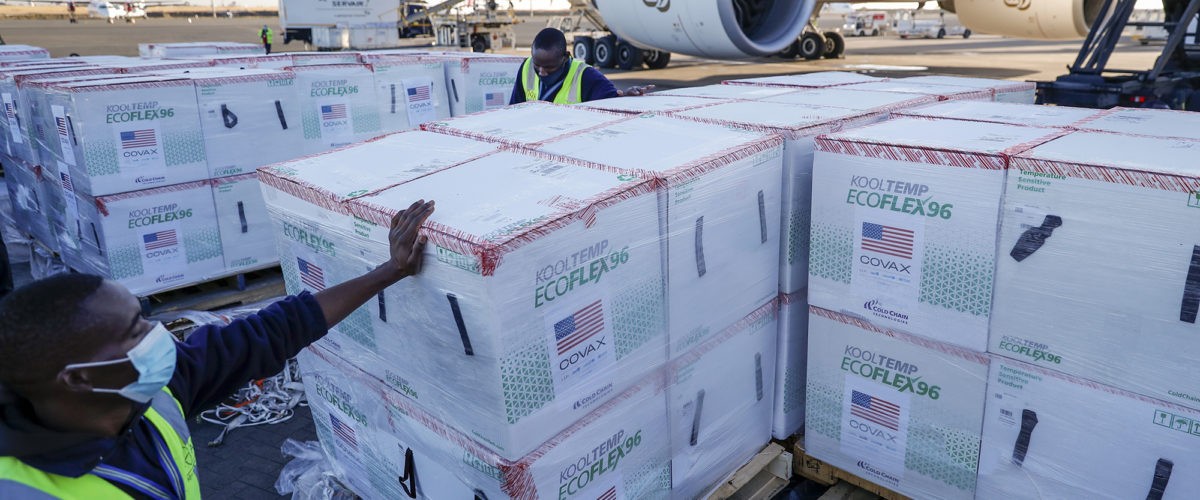While inequity has caused the African continent to have less access to COVID-19 vaccines than the rest of the world, vaccine hesitancy already is in full supply.
That hesitancy is hampering the global effort to contain or defeat the coronavirus disease, observers claim. And as in the United States, this hesitancy is driven, in large part, by people’s religious, cultural or personal beliefs.
Across Africa, rumors circulate that the virus is not as deadly as touted, that those pushing for people to take the COVID vaccines have ulterior motives, that the vaccines are harmful to humans or carry the “mark of the beast.”
Seeking to dispute such claims, the African Union, the continent’s governing body, through the Africa Centers for Disease Control and Prevention, recently urged people to ignore such rumors.

John N. Nkengasong
John Nkengasong, director of the Africa CDC, speaking at an Oct. 7 event, pointed out that while myths or misconceptions have trailed COVID-19, they should not take the place of facts.
“We have to admit that behavior toward vaccines is an issue that has been there before. Vaccine hesitancy has been there, and those who have been in the polio vaccination programs will confirm that we have always had such issues,” he said. “We just have to make sure that we use the community approaches to increase awareness of the vaccines. When you have a new product, it is expected that the community will be divided, but that hesitance is not static, and there’s a tendency to move in the right direction once people are more engaged and informed about the benefits of the vaccines.”
History shows that vaccine hesitancy in Africa indeed predated the coronavirus pandemic. A Dec. 17, 2019, report by Charles Shey Wiysonge, published by the Council on Foreign Relations, shows that doubts and indecision about vaccines are not new.
“Over the past two decades, vaccine-related rumors in different parts of Africa have led people to refuse recommended vaccines for themselves or their children, even when those vaccines were available. This made communities more susceptible to infectious diseases and resulted in multiple disease outbreaks, ultimately consuming resources and costing lives,” he explained.
“For example, in Cameroon in the 1990s, beliefs that childhood vaccinations were being used to sterilize girls sabotaged the country’s immunization efforts. Suspicions of cholera immunization campaigns in Mozambique, rumors surrounding tetanus toxoid and other vaccines in various countries in East and West Africa, and increased public concerns about and refusal of vaccinations in Zimbabwe all suggest that vaccine hesitancy trends and risks are on the rise in Africa.”

Lucy Jarju poses for a photo at the oyster processing site in Serrekunda, Gambia, Sept. 25, 2021. Jarju says she is not willing to be vaccinated if it means she could miss even a day’s work. Her husband died a decade ago, leaving her alone to provide for her seven children. She does not deny that COVID-19 exists but she is scared about the vaccine. “If my arm gets heavy and I can’t go to the water, who will feed my children?” said the 53-year-old woman who has been working for 15 years harvesting oyster and shellfish in the Gambia river. (AP Photo/Leo Correa)
While noting that “rumors can degrade the confidence that the public has in vaccines, leading potentially to an increase in the levels of vaccine hesitancy,” Wiysonge added that the cost could be deadly and far reaching — as seen in Nigeria, where a boycott of a polio immunization exercise ended up creating more problems elsewhere.
“In 2003, political and religious leaders in Kano, Zamfara and Kaduna States in Northern Nigeria boycotted the national immunization days organized in the context of the global polio eradication initiative,” he recalled. “This was partly due to widespread rumors that the vaccines could be contaminated with anti-fertility agents, HIV and carcinogens. This boycott in turn led to a five-fold increase in polio incidence in Nigeria between 2002 and 2006 and contributed to polio outbreaks across three continents.”
To improve the COVID vaccine intake in Africa, many community and religious leaders at local and national levels across the continent — who have fueled some of the doubt and indecision — would need to assist in enlightening the people to the truth.
A survey conducted by the Africa CDC, in league with the London School of Hygiene and Tropical Medicine, between August and December 2020 shows that a majority (79% average) of respondents in Africa agreed to take the COVID vaccine “if it were deemed safe and effective.”
The survey involved interviews with more than 15,000 adults, ages 18 years and above, in 15 African countries: Democratic Republic of the Congo, Sudan, South Africa, Burkina Faso, Côte d’Ivoire, Gabon, Malawi, Morocco, Niger, Nigeria, Senegal, Kenya, Tunisia, Uganda and Ethiopia.
Three of the surveyed countries — Tunisia, Morocco and South Africa — were among those recently praised by Nkengasong for setting the pace in COVID vaccinations across the continent. Top on the list is Morocco, which as of early October, had 53% of its population fully vaccinated, followed by Tunisia with 26%, South Africa 16%, Algeria 9%, and Egypt 6%.
Generally, 200 million doses of vaccines had been supplied to 53 member states by October, out of which, “156 million doses (were) administered, accounting for 76.77% of the total supply available.”
According to the World Health Organization in a Sept. 30 report, only “2% of the more than 6 billion vaccines given globally have been administered on the (African) continent.”
The WHO report further reveals that only 15 African countries — representing “nearly a third of the continent’s 54 nations — have fully vaccinated 10% of their people against COVID-19.” That means many African countries fell short of the Sept. 30 deadline set in May by the World Health Assembly for every country to fully vaccinate 10% of their population. Compared to Africa, “almost 90% of high income-countries have met this target.”
With Africa’s dismal statistics, more work still needs to be done if the Africa Union, through the African Vaccine Acquisition Trust, hopes to realize its goal of fully vaccinating 60% of the African population by the end of 2022.
Only 15 African countries, representing nearly a third of the continent’s 54 nations, have fully vaccinated 10% of their people against COVID-19.
While officials like Nkengasong seek to win the minds of people, efforts by Africa’s COVID envoys to access more vaccines and improve its delivery across the continent continue.
As Oct. 19, a total of 8.4 million COVID-19 cases and 215,760 deaths had been recorded across 55 African countries. This represents 3.5% of all COVID cases worldwide and 4.4% of deaths.
But with threats of new variants across the world, experts believe it is essential that Africa continue enlightenment programs about the usefulness of vaccines, as well as an improved delivery system that eliminates bureaucratic bottlenecks and helps get the vaccines into people’s arms.
Anthony Akaeze is a Nigerian-born freelance journalist who currently lives in Houston. He covers Africa for BNG.
Related articles:
While Americans reject COVID vaccines, other parts of the world beg for access
Of sheep and goats, vaccines and conspiracies, biblical literacy and illiteracy | Opinion by Kris Aaron


